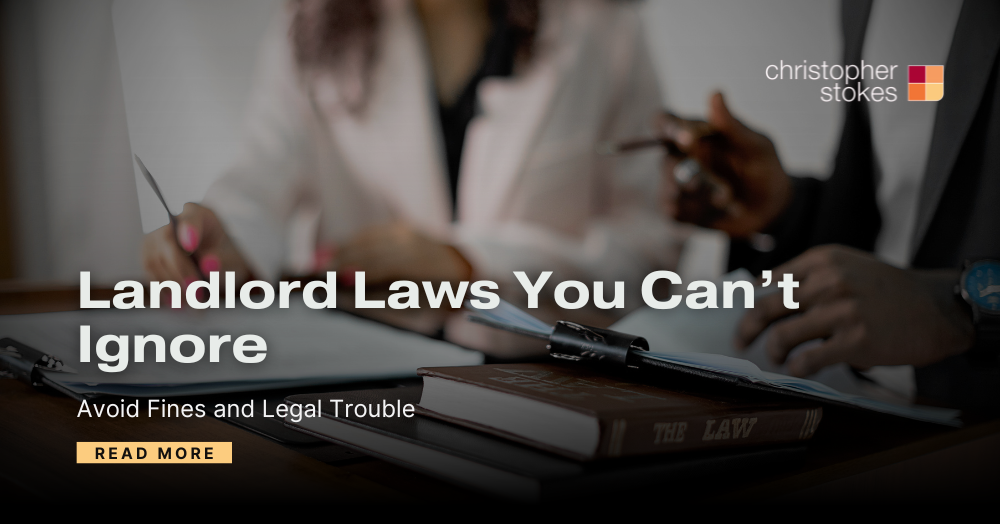
Landlord Laws You Can’t Ignore, Avoid Fines and Legal Trouble...
Are you a landlord navigating the ever-changing landscape of property regulations? Staying compliant isn't just good practice, it's essential to avoid hefty fines and legal complications. Let's dive into the key laws you absolutely need to know.
Being a landlord in the UK comes with significant responsibilities, and the legal framework is constantly evolving. Ignoring these laws isn't an option, it can lead to severe penalties, including unlimited fines and even imprisonment in some cases. We understand the complexities, so let's break down the crucial areas you need to focus on to protect your investment and your tenants.
The Importance of Gas Safety
One of the most critical responsibilities is ensuring gas safety. As a landlord, you are legally required to have all gas appliances, flues, and pipework checked annually by a Gas Safe registered engineer. A copy of the Gas Safety Certificate (CP12) must be provided to your tenants within 28 days of the check, or before they move in. Failure to do so is a criminal offence and can have devastating consequences.
Electrical Safety Standards
Since April 2021, it's mandatory for landlords to ensure electrical installations in their rented properties are inspected and tested by a qualified person at least every five years. This results in an Electrical Installation Condition Report (EICR). A copy of the EICR must be given to existing tenants within 28 days of the inspection and to new tenants before they occupy the property. This protects your tenants and prevents potential electrical hazards.
Fire Safety Regulations
Fire safety is paramount. You must ensure your property has working smoke alarms on every storey and a carbon monoxide alarm in any room with a fixed combustion appliance (excluding gas cookers). These alarms must be tested at the start of each new tenancy. Furthermore, you need to consider the fire safety of furniture and furnishings, ensuring they meet the 'fire resistant' standards. For Houses in Multiple Occupation (HMOs), fire safety requirements are even more stringent, often requiring fire doors and emergency lighting.
Right to Rent Checks
Before a tenancy begins, you are legally obliged to check that all adult tenants have the 'Right to Rent' in the UK. This involves checking original identity documents and keeping records. Failing to conduct these checks can result in significant fines and even a prison sentence. It's a vital step in preventing illegal immigration and ensuring a lawful tenancy.
Deposit Protection Schemes
If you take a tenancy deposit, you must protect it in one of three government-approved tenancy deposit schemes within 30 days of receiving it. You also need to provide your tenants with 'prescribed information' about the scheme. Not protecting a deposit, or failing to provide the correct information, can result in you having to pay your tenant up to three times the deposit amount in compensation.
Energy Performance Certificates (EPCs)
All rental properties must have an Energy Performance Certificate (EPC) with a minimum rating of E, unless a valid exemption is registered. An EPC provides tenants with information about the property's energy efficiency and typical energy costs. You must provide a copy to prospective tenants and new tenants. This not only helps tenants understand their potential bills but also encourages landlords to improve their property's energy efficiency.
Understanding Your Responsibilities
The world of landlord legislation can feel overwhelming, but staying informed is your best defence. We pride ourselves on understanding what makes a property attractive and compliant. If you're looking for guidance on preparing your property for the market, or simply want a free valuation to understand its current worth, we're here to help. We're effective at getting viewings and bringing people through doors, ensuring your property is seen by the right tenants, quickly and efficiently.
Don't let legal complexities deter you, let us help you navigate them with confidence. For more insights or to discuss your property, get in touch with our expert team today.
